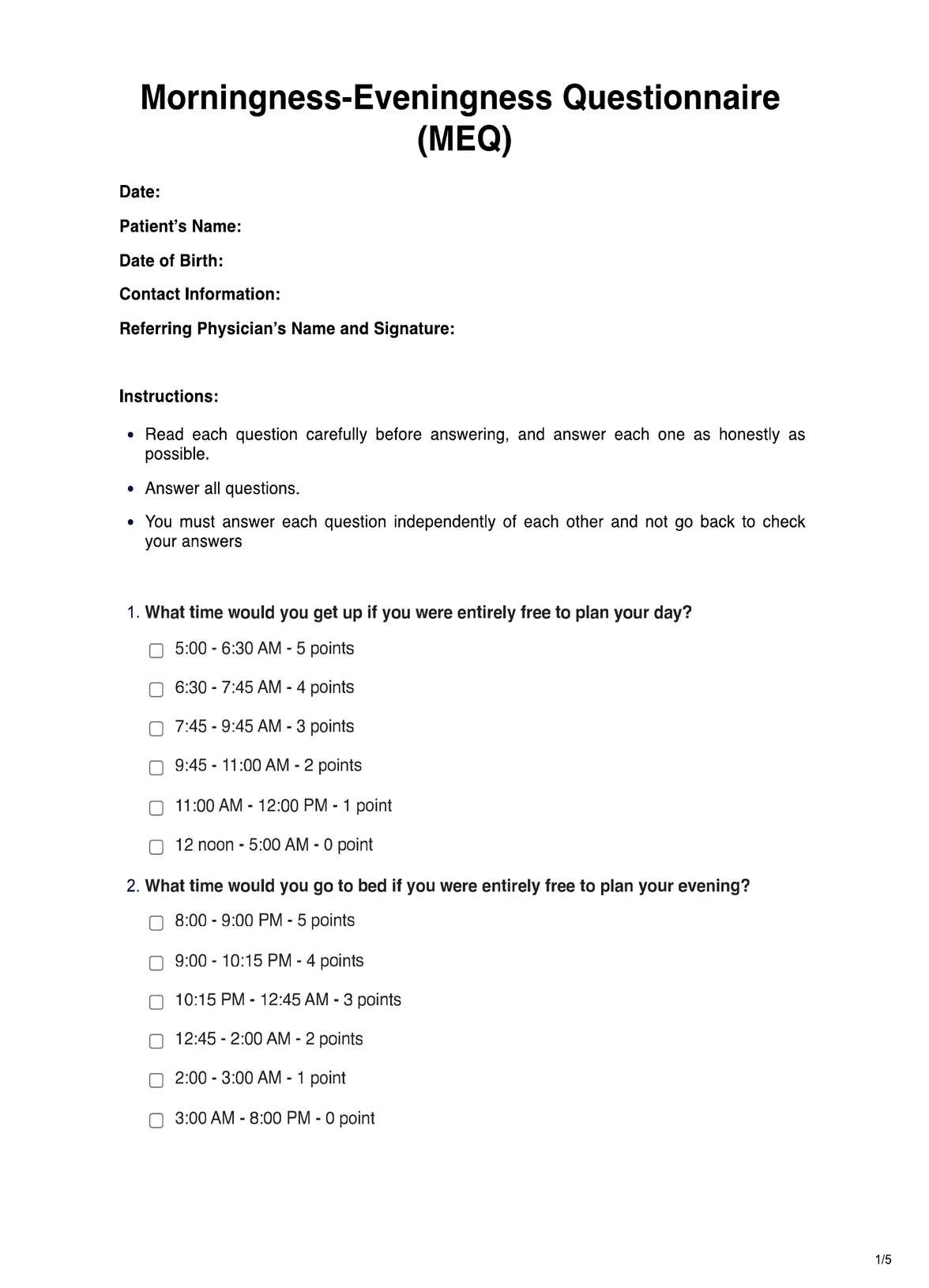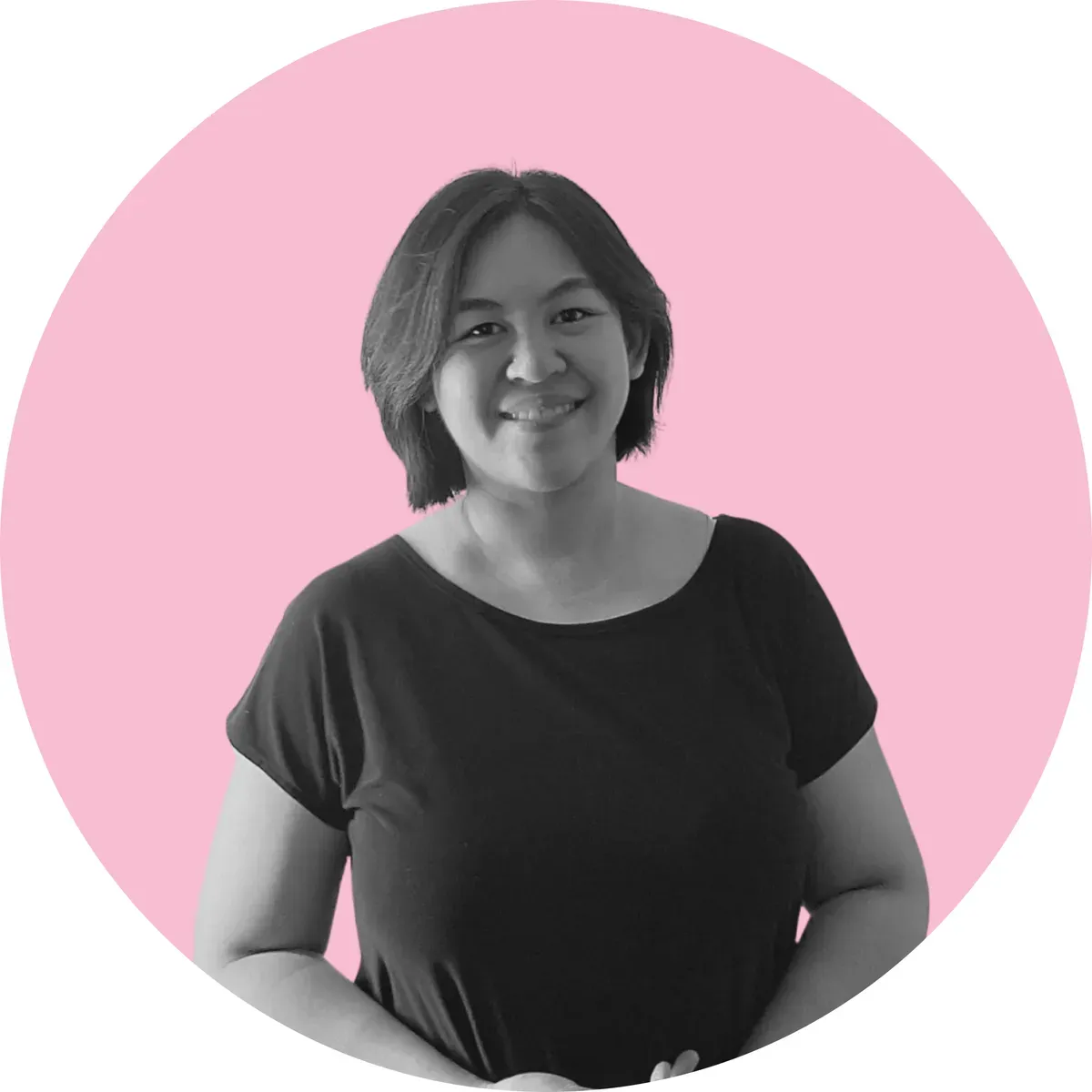The Morningness-Eveningness Questionnaire (MEQ) is a self-assessment tool that measures an individual's circadian preference, or their natural inclination to be more of a "morning person" (morning-type) or an "evening person" (evening-type). It assesses an individual's preferred timing for sleep, wakefulness, and daily activities.

MEQ Test
Give your patients a MEQ or Morningness-Eveningness Questionnaire to understand more about their circadian rhythm. Click here for a copy and more information.
MEQ Test Template
Commonly asked questions
An "intermediate" result on the MEQ indicates that the individual does not strongly prefer either morning or evening schedules. They exhibit a more balanced circadian rhythm and can easily adapt to both.
The MEQ consists of 19 multiple-choice questions that assess various aspects of an individual's sleep-wake preferences and daily habits. Each question is scored on a scale, and the total score ranges from 16 to 86. Scores are then categorized as morning-type (59-86), intermediate-type (42-58), or evening-type (16-41), indicating the individual's circadian preference.
EHR and practice management software
Get started for free
*No credit card required
Free
$0/usd
Unlimited clients
Telehealth
1GB of storage
Client portal text
Automated billing and online payments











